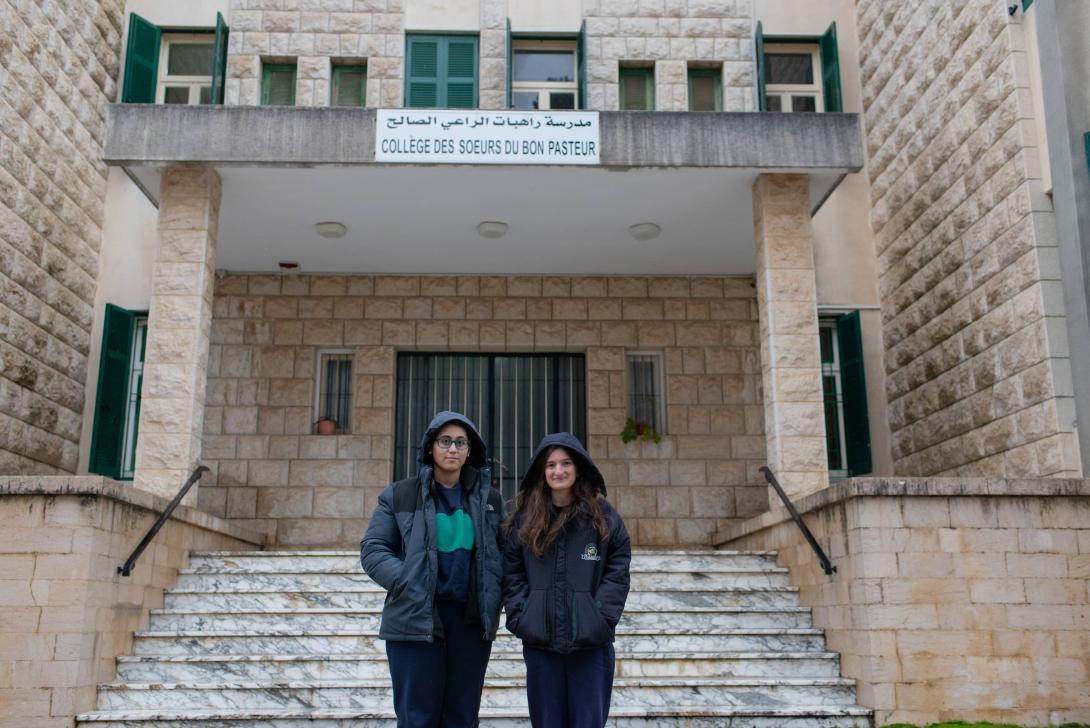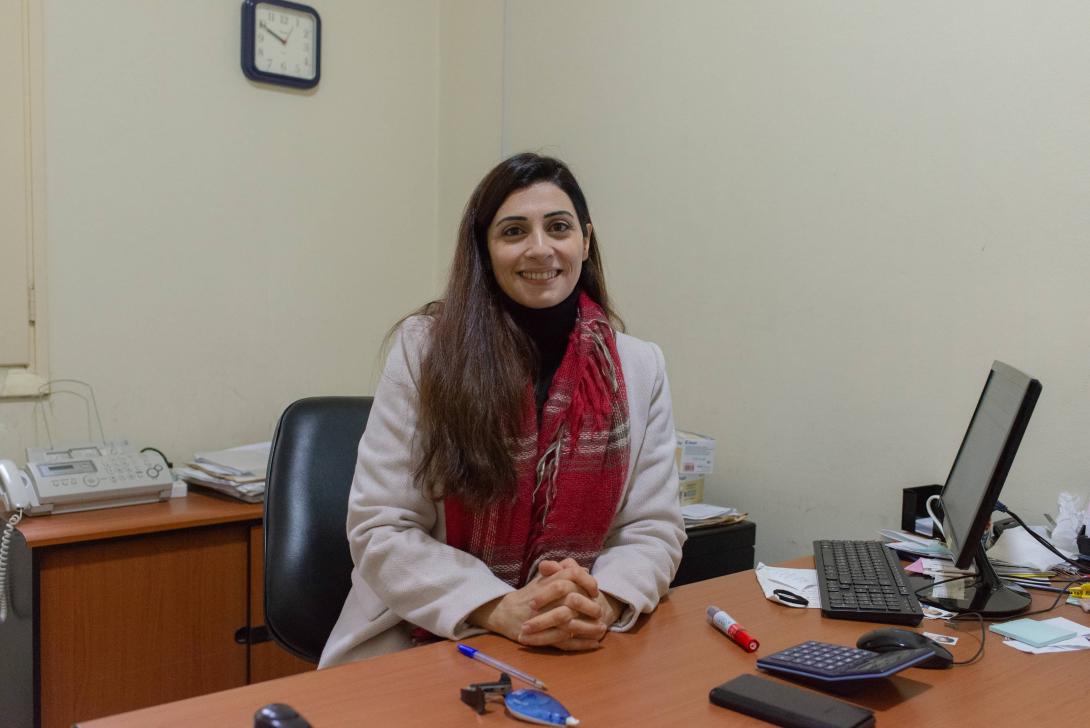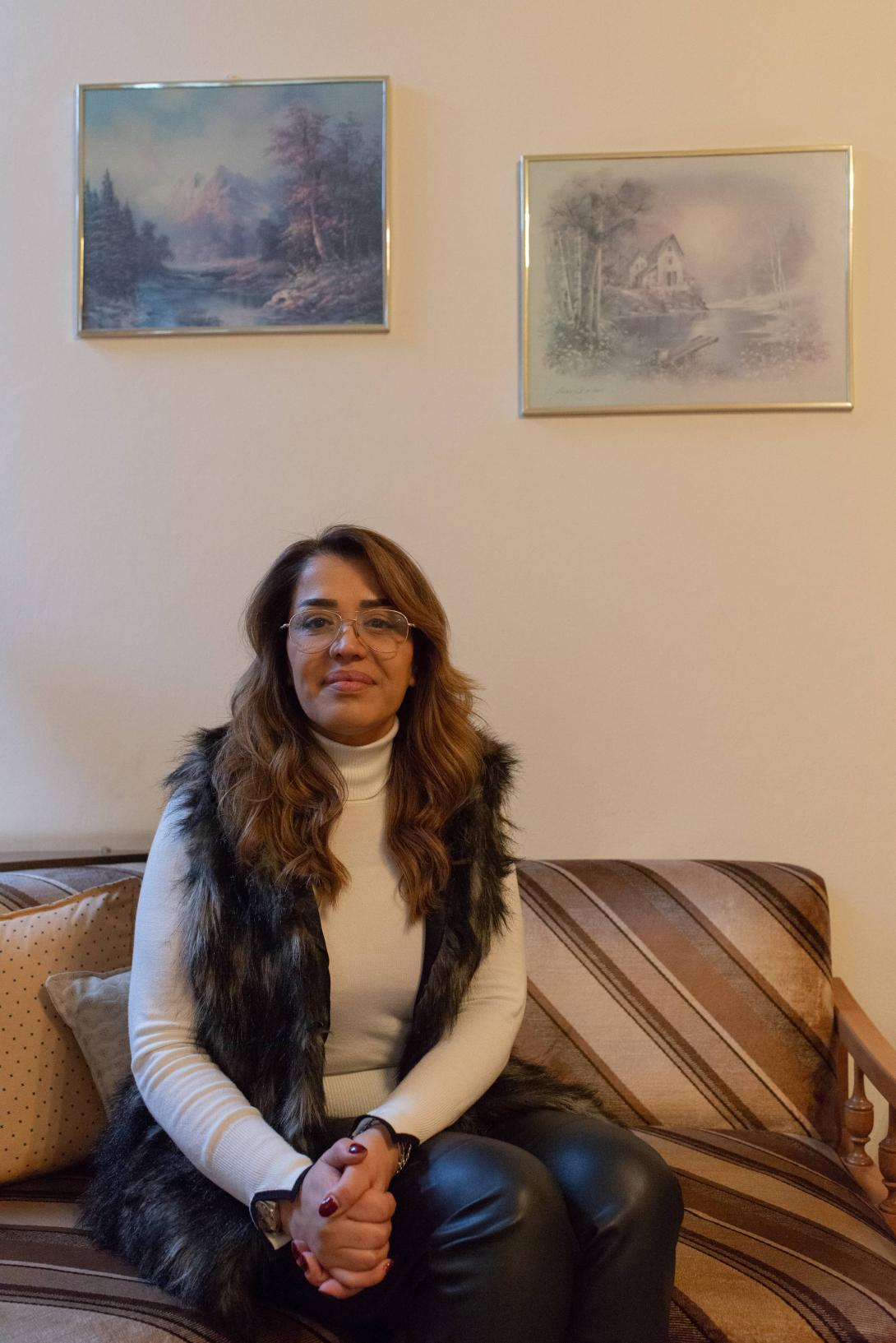

The school Notre-Dame du Bon Pasteur in Hammana is located in the mountainous region of Mount Lebanon, 25 km from Beirut. It has 346 pupils from various backgrounds and religions, including Druze, Christian and Muslim. These students are supported by professionals throughout their schooling. Particular attention is paid to young girls growing up in a society that may consider them inferior. But what difficulties do these young people face along the way? Meet the professionals who support them every day!

Solange Assaf, the school's social worker, explains the challenges involved in the educational care of these young people: "30% of the pupils have learning difficulties, and suffer physical or verbal violence at home. I'm confronted with problems every day: some children suffer from dyslexia or hyperactivity. I notice a lack of concentration and a tendency to be aggressive towards other pupils. All of this has an impact on learning and school results. Some students are reprimanded with physical and violent gestures when they present their parents with a bad report card, while others are threatened with having to leave school. In these cases, she says, they are referred to the psychologist, along with the parents, whom the teams meet once a week.”
Supporting families, and mothers in particular, to change their educational attitude and behaviour towards their children helps to restore confidence and self-assurance: "Agreeing to cooperate is the key to success, adds Solange, because some parents are reluctant.”
Due to a lack of resources, certain parents no longer want to send their child to school. In this case, the school steps in and enrols the child free of charge. At the school, a team made up of a special educator, a psychologist and a social worker decides on the follow-up plan for the children. Jamal Chaya, the psychotherapist, works at the school twice a week. She tells us about the challenges she faces on a daily basis.

Not all the children come to you alone. How do you identify their problems?
"Some children come on their own. Sometimes I attend the class to observe them, to notice a lack of concentration, agitation or hyperactivity that they display, often unconsciously. Some suffer from severe stammering. Small classes are easier to read in terms of problems. As for the large ones, the students make an effort in my presence, which prompts me to refer to the teachers for more information.
Some come to me for psychological support, to ask for advice and to share their problems, and that's when I ask to meet the parents, as I can't intervene without their approval. Only a few parents get in the way and refuse to cooperate. During the sessions, I take my time and never force anyone to talk, but try to establish a relationship of trust. Some cases are more serious than others, but I treat all children with the same availability and the same attention because suffering knows no scale."
Do parents ever come to you?
"A couple once asked to see me. They were in distress and recognised their mistake. The husband and wife had been abusing each other to no end, ending up taking it out on their child. I started couples therapy to restore balance at home. After a while, the benefits of this therapy were reflected in the child's behaviour."
The establishment is run by our local partner, the Sœurs Du Bon Pasteur, and is part of a wider initiative in Lebanon, which includes two other centres dedicated to young girls in vulnerable situations. The APPI (Autonomisation, Protection, Prevention and Integration) project helps more than 800 young people every year, offering them emergency shelter, educational support and psychosocial counselling.